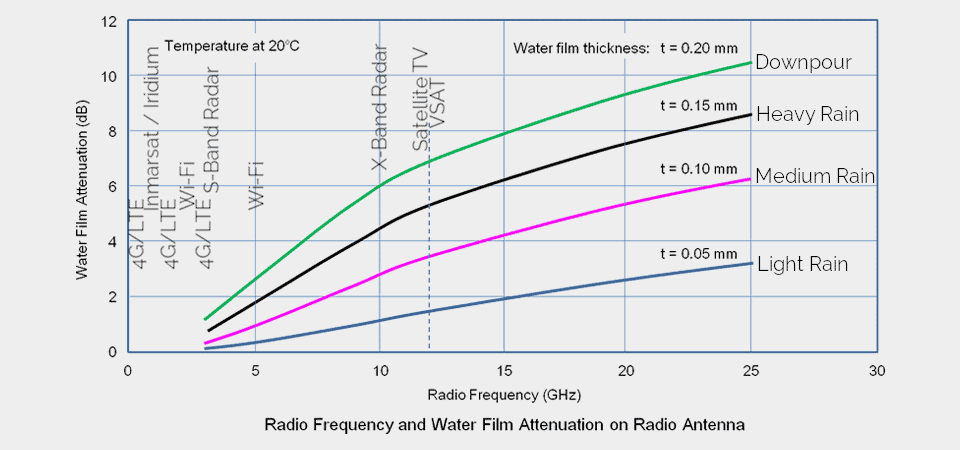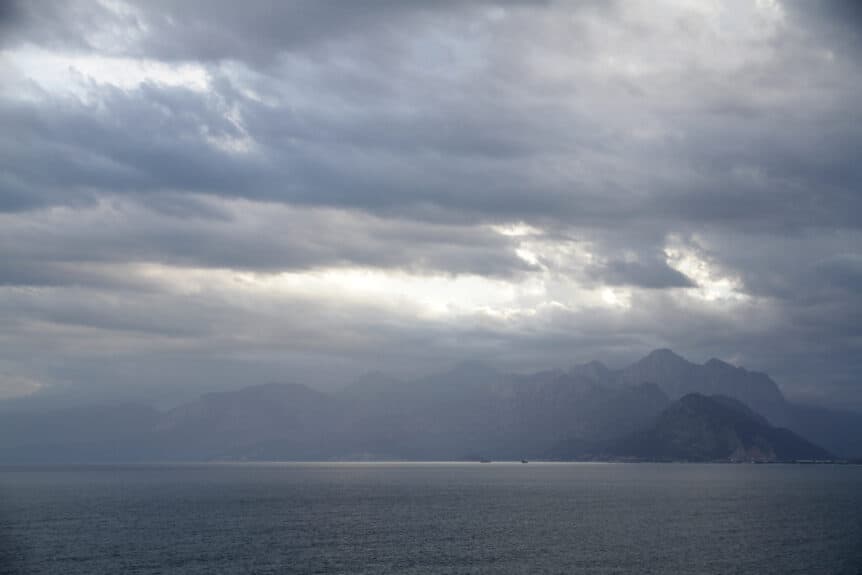The scenario, the vessel is quietly at anchor, you’re watching the Formula 1 on TV, received via your satellite receiver and suddenly the signal drops, comes back and drops again. The Guest calls the crew to fix this and the next 30mins is spent troubleshooting what may be wrong with the TV receive dish…
Did anyone actually look out the window? Noted that it had started raining and a grey cloud in the sky hangs there above the vessel?
What is rain fade?
Most simply said moisture in the sky between the satellite dish on your boat and the satellite in the sky can and will cause a decrease in the signal being received.
It’s moisture – this is rain, sleet, snow or simply a very heavily loaded (normally dark coloured) cloud!
Rain fade may even affect your signal if the storm is many miles from the you, due to the line of sight. If your dish is pointing at 30º from the horizon (often so in the Mediterranean) a dark cloud many miles away on the horizon could well affect you!.
With all the technology advancement that we have made, mother nature is simply one that we cannot overcome that easily.
What does it affect?
Rain fade when it happens interrupts the wireless RF signal, with the simple effect, the more moisture the worse the signal. But it does not affect all RF signal (frequencies) equally. The simple rule is the higher the frequency the worse the effect is.

So why not use lower frequencies for the VSAT and TVRO services…?
Well the lower the frequency the larger the satellite dish!
How can you check?
Signal drop or loss happens due to 3 reasons…
1. Blockage, i.e. your own mast blocks the antenna, another physical object like a tall building or larger vessel parked alongside!
Check you antenna pointing direction and see (with your own eyes) if there is something in the way…
2. Rain Fade, for all the reasons explained above.
Normally the fade starts slowly gradually decreasing the signal and gradually returning. This should be seen by the signal level meter on the Antenna control unit. And here we can only wait for the weather to change.
3. Physical system failure, something as simple as a lose antenna cable/connector, salt water ingress into the antenna cable, bad earthing on the below deck equipment.
The signal loss here is more permanent, either it gradually has gotten worse over time although you have not moved, or there was a complete total loss. This will be the case where you need to call your service technician!
Oh, what about Sun Fade?
Well there is one more reason to loose signal, and this happens on that odd occasion when the satellite happens to be right in-front of the Sun. Here the “noise” coming from the sun actually drowns out the satellite signal. Another moment where mother nature gets the better of us!
This article was written by Tim Gorter, Virtual AVIT ETO, www.teletechnics.com. I provide support and training to crew assigned to look after their AV & IT system onboard. Making sure you understand how it works, and that you get the best out of it. Call for an AV & IT health check, more on teletechnics.com


